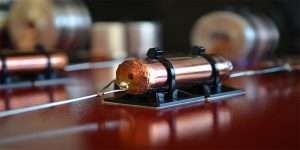What is Intellectual Property Right?
Intellectual property is the product of the human intellect including creativity concepts, inventions, industrial models, trademarks, songs, literature, symbols, names, brands,….etc. Intellectual Property Rights do not differ from other property rights. They allow their owner to completely benefit from his/her product which was initially an idea that developed and crystallized. They also entitle him/her to prevent others from using, dealing or tampering with his/her product without prior permission from him/her. He/she can in fact legally sue them and force them to stop and compensate for any damages.
There are many forms of intellectual property, each protecting a different type of intangible property for a specific term and under the grant of a different protection.
Patents (new and nonobvious device/method)
Trademarks (source identifiers, brands)
Copyrights (expression of an idea)
Trade Secrets (technical/business secrets)
Each country has their own IP laws. IP is only enforceable in the country where it was obtained.
How does IPR relates to Engineers?
• All engineers should be particularly concerned with patent law. This constitutionally-based discipline has to do with the process by which an invention, and its creator, are protected by the law from infringement and unfair competition.
• The class will deal with patent applications, research and prosecution; the law of infringement, and computer applications of software (protected by copyright) and hardware (by patents).
• We will also state what other concepts are patented, as well as machines, processes, mixtures, manufacturing, compositions of materials and methods of doing business and research.
• Not only do we deal with utility patents, but with design and plant patents as well. Although we are mostly concerned with patent law, we also deal with copyright, trademark, trade dress, trade secrets and business methods.
• The engineer must be at least conversant with the other forms of intellectual property. In a relatively short time, we will give you a survey of the rights of creative and ingenious people and provide you with the information to protect yourself and your ideas in Intellectual Property matters. Coursework in Intellectual Property is equivalent to 45 clock hours of study.
Who is Patent Engineer?
A patent engineer or patent scientist is a patent professional who is typically involved in preparing and prosecuting patent applications. The terms are usually applied to patent professionals with scientific or engineering backgrounds that do not require either attorney or patent agent qualifications, but still work with patent applications.
A Patent Engineer is a person who:
Understands technology
Finds old technologies already known to public
Draft application carefully
Files application
Convinces patent office for getting a patent
Identifies economic asset
Protects invention from counterfeits and fake products
Role of Patent Engineer in a Firm
• Understanding client: Application drafting is impossible without meeting and understanding the client’s invention. The Patent Engineer performs this task as he is supposed to draft the application.
• Creating application: Indian patent law restricts the patentability of certain inventions like software, business methods etc. Application should be drafted according to those rules.
• Managing complete team: This professional generally manages Patents department. Main duties are:
• Designating different steps of prosecution to right team
• Keeping check on completion of activities
• Coordination with rest of the team: Patent Engineer studies trends of the current market. For proper functioning of several departments, Analysis report generated by patent engineer is important.
Where do they work?
Patent Engineers are commonly seen in the innovation industry. Inventors & Patent Engineers play significant role in these companies. These companies innovate and hire professionals to work on these inventions. As I discussed earlier, Patent Engineer will draft application to be field in patent office. Also, he will protect application from infringement.






